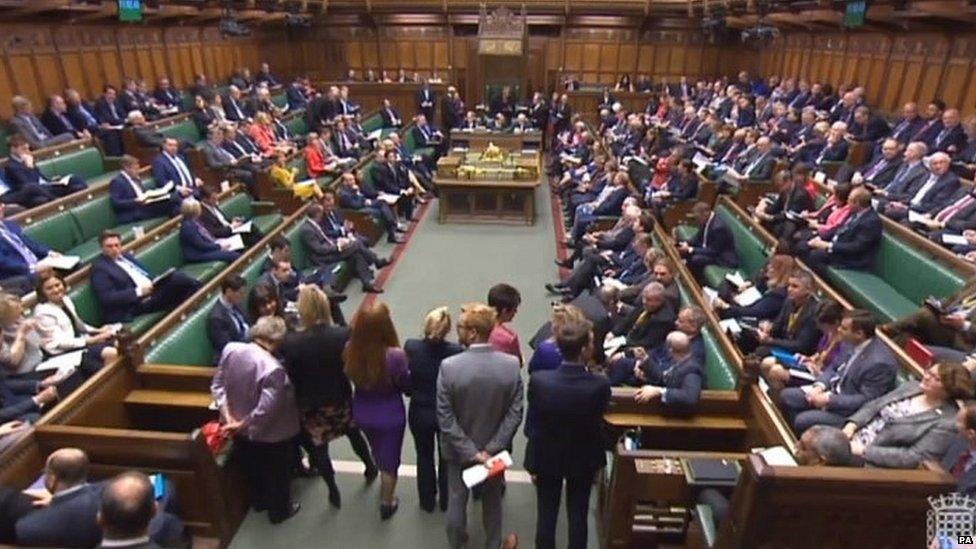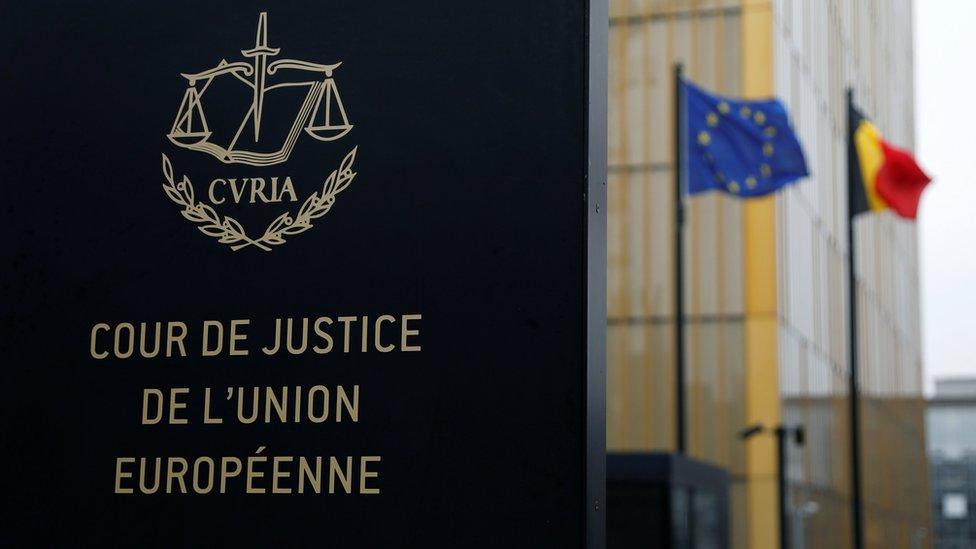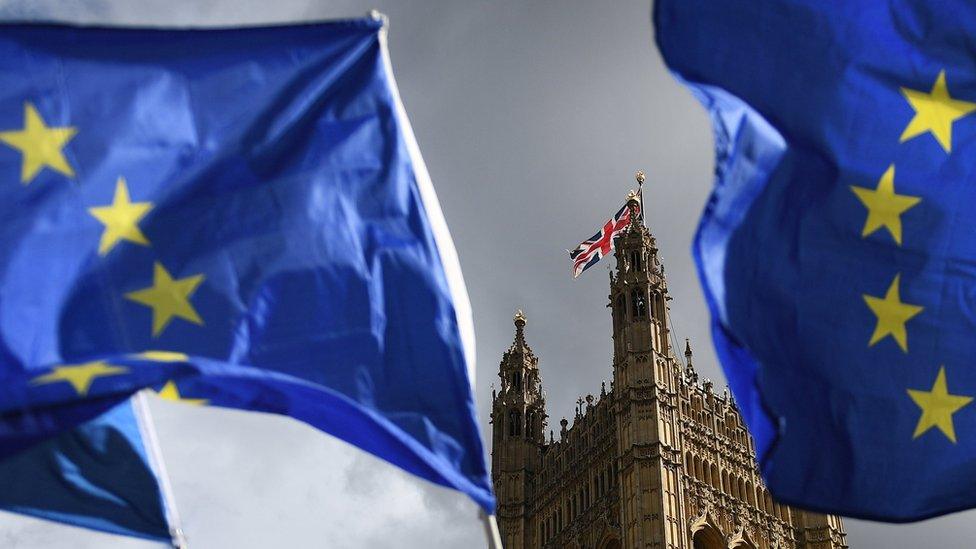Brexit: Call for new committee to scrutinise legislation
- Published

Parliament must raise its game to properly scrutinise legislative changes arising from Brexit, MPs have said.
The Commons Procedure Committee said MPs faced an "unprecedented" challenge in dealing with the anticipated volume of secondary legislation as EU laws are converted on to the UK statute book.
The Withdrawal Bill will give ministers powers to amend and enact legislation through use of statutory instruments.
MPs said concern about these so-called Henry VIII powers was "considerable".
Ministers have rejected Labour's claims of a power grab, saying the bill is a necessary foundation to prepare the UK for its exit from the EU in March 2019 and to provide legal certainty.
The government's flagship EU bill was approved in principle in September but many Tories said their concerns about the powers it would grant would have to be addressed as the bill made its way through Parliament.
Detailed scrutiny of the bill has yet to begin after more than 400 proposed amendments were tabled calling for changes of one kind or another.
Most statutory instruments, otherwise known as secondary or delegated legislation, are never debated by Parliament and their volume has increased hugely in recent years.
'Thorough scrutiny'
Former attorney general Dominic Grieve has warned that there could be up to 1,000 SIs arising from Brexit and without a mechanism for assessing and approving them, the bill will not be "fit for purpose".
The cross-party procedure committee's report endorsed this view arguing, as it stood, MPs would have "insufficient control" over the passage of non-primary legislation.
It is calling for a new committee to consider every single proposed statutory instrument, with the power to refer them for further debate by MPs or to demand they be rewritten or even revoked.
"There is considerable concern in the House and elsewhere about the scale and scope of the powers claimed to amend existing legislation," the report stated.
"While these powers may be necessary, in view of the task which the government envisages, their exercise must be subject to thorough and appropriate scrutiny by Parliament."
Charles Walker, the Conservative MP who chairs the committee, said the government's assurances about the level of parliamentary scrutiny of the bill did not go far enough.
"The process of enacting over four decades' worth of European legislation into UK domestic law, in little more than 12 months, is one of the greatest legislative challenges Parliament has faced," he said.
"The task faced by the House is unique and therefore it needs a scrutiny system that is up to the challenge."
- Published13 November 2017

- Published12 September 2017
